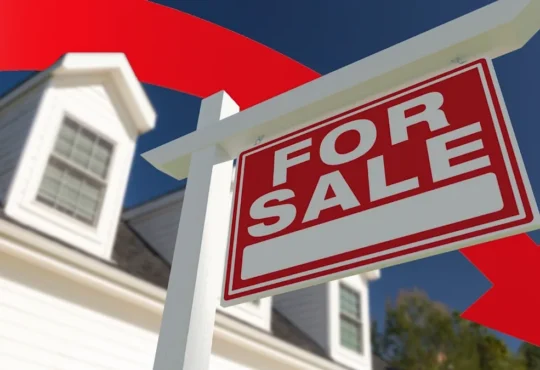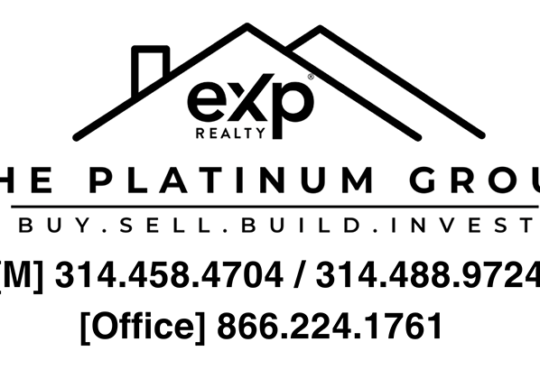
When you’re looking to buy or sell a home, you’re likely going to get in touch with real estate agents. It’s a good idea to work with one, but how can you be sure an agent is right for you? There are thousands of real estate agents in the Metro Vancouver area alone, and many more across Canada.
To help understand what to look for and how to determine which agent is right for you, we asked Realtor Carolyn Pogue, Personal Real Estate Corporation at Royal LePage Sterling Realty and area expert for REW’s Port Moody RealTours episode, for some advice.
Start by narrowing down the what and where — and your finances
Before reaching out to agents, Pogue recommends taking some time to determine what matters to you. “A big [consideration is] budget and also location, because we do have some first-time home buyers — and just buyers in general — that say, ‘I love everywhere in the Lower Mainland,’” she says. “We can’t set you up on a customized search effectively and narrow down the results if we don’t know more about your criteria.”
Take some time to narrow down your must-haves, nice-to-haves and must-not-haves. If you’re looking to buy, consider the types of properties you want (condo, detached home, townhouse, etc.), your budget, neighbourhoods that interest you, schools you’d like your children to attend, transit options, and other considerations. Preparing these now will help you select potential agents later, who understand these needs in your desired locations.
If you are looking to sell your home, these are also worth considering if you are planning on moving somewhere else. Plus, try to outline your ideal selling timeline, especially if you’re also trying to line up your purchase at the same time.
And importantly, try to get a mortgage pre-approval if you can. Pogue says that, “before working with someone, one of our first questions is: are you already pre-approved? Are you in the process?” But if you don’t have mortgage pre-approval, that’s not a show-stopper. Pogue notes that experienced agents often have existing relationships with knowledgeable mortgage brokers who can help if you are unsure where to begin.
Ask the right questions
Once you have a general idea of what type of home you want and where you’d like it to be, you can start the process of contacting real estate agents. The internet is a natural place to turn, but Pogue says it’s also good to start with friends, family and neighbours that have used agents already, and have had great experiences. If you’re listing your home for sale and notice your neighbours or friends are as well, she says don’t be afraid to ask, “what was your experience like? That’s a good thing to do for sure.” But don’t feel stuck using a recommendation from friends or family purely because it comes from word of mouth. It’s still worth it to research multiple agents, and do your homework on their testimonials.
Pogue recommends asking the following questions when first meeting real estate agents:
- Is real estate your full-time career? And how active are you?
- You want to be sure your agent is devoting their hours to this industry so that they gain experience and knowledge and understand the current market. Markets change fast, so an active agent will have their eyes on changes as they happen.
- Are you a solo agent, or do you have a team?
- Solo agents may have a tougher time handling multiple clients at once, as you can only be in one place at a time, so you’ll want to ensure if you are working with one, that they have a system and process in place for handling multiple clients at a time, while still offering excellent, hands-on service.
- For homeseekers looking to sell their home, ask for their portfolio of sales in your area.
- You’ll want to see how much success the agent has had selling similar homes to yours in your neighbourhood, and make sure they understand the comparables.
- Ask for the agent’s overall strategy, communication style and approach.
- You want to be sure the way they work aligns with your needs. If you like frequent communication, make sure they offer that, but if you want to be contacted only when suitable listings or formal offers come in, let them know.
Along with these questions, it’s a good idea to look at testimonials and reviews. Many agents feature testimonials on their websites. Beyond the overall rating, look for common threads on how the agent works, their communication style, their approach to real estate and other trends.
“We always send a link to our testimonials for our clients,” says Pogue.
“A lot of the clients that do reach out, it seems like they have read through them because they’ll reach out and say, ‘from what I’ve seen online…,’” she elaborates.
If you’re still not sure, you may ask to speak with previous clients an agent has worked with.
Know where and what an agent specializes in
It’s a cliché for a reason; real estate is all about location. That goes for real estate agents just as much as it does for properties themselves. Knowing where an agent specializes can help you narrow down who to work with.
Most agents focus on certain geographic areas. “We do recommend that if clients are looking in a certain area… do the research, try to find the agents that do specialize in certain neighbourhoods. Because there might be unique aspects of those neighbourhoods that they want advice on, like school catchments, upcoming developments or zoning changes,” says Pogue.
For buyers, an agent familiar with the neighbourhood you’re interested in can help you determine what the current market is (buyer’s or seller’s market), what amenities are in the neighbourhood and what locals like to do there. If you don’t already have an agent, REW’s Connect can put you in touch with one in your area within minutes.
Likewise, for sellers, a locally-focused agent knows where to advertise your property, what the local comparables are and how to entice people to your open houses.
“The majority of our clients are focused within Port Moody, Coquitlam and the Tri-Cities, which would be our niche market, however we do work a little more widespread as well,” says Pogue.
Some agents may specialize in certain types of property as well. For example, condos, single-family homes, acreage properties or luxury homes. While most agents are likely flexible in the types of property they work with, if you’re considering highly-specialized or unique listings, like co-ops or commercial properties, finding an agent that focuses on them is worthwhile.
Don’t be afraid to say ‘no thanks’
The process of finding the right real estate agent for your needs will inevitably involve rejecting people who aren’t the right fit. Therefore, don’t be afraid to say “no thanks” to agents who don’t line up. Be respectful and polite in your rejections, but remember they will happen.
“Most of the clients that we speak with… they’ll say, ‘just to let you know, we are talking to a few agents,’” says Pogue. “I believe that this is just part of the process as a Realtor. And I think it’s smart for buyers and sellers to do their due diligence and meet with a few agents to find one that fits with what they’re looking for.”
Picking the right real estate agent for your needs requires research, reflection and careful thought. You’re going to be working with this person on what is likely the largest financial and emotional transaction in your life, so making sure they’re the right fit will help set you up for success.





